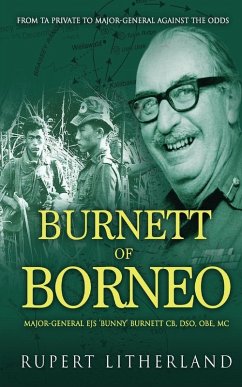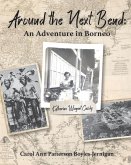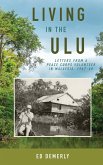'From a host of private papers and previously unpublished sources, Rupert Litherland has produced the first biography of one of the Brigade of Gurkhas' great characters - General Bunny Burnett. Promoted against all the odds, Bunny was an unconventional soldier with an uncanny knack of predicting what the enemy would do next. He often said that he spent his life in the company of Mongolian mercenaries; he loved and was loved by his Gurkhas and while utterly uncaring about his own life, was assiduous in caring for theirs. Much of the detail in this book will be news even to those who served under Bunny and knew him well, and it does not shrink from pointing out where things went wrong - for not even Bunny was perfect, nor would he have claimed to be. A cracking good read, highly recommended to anyone with an interest in Gurkhas and in Britain's imperial policing.' - Gordon Corrigan, author of Waterloo - A New History of the Battle and its Armies 'War at its worst is a grim business, but soldiering does not have to be. Indeed, soldiering without laughter is an inhuman affair. Nor is the soldier's proverbial humour always black. There is more honest laughter in a regiment of confident, professional men than anywhere I know, which often comes as a surprise to those who have never served. Whenever soldiers are portrayed on stage or screen they all too often lack the wit, repartee, and sheer sense of fun of the real thing. Major-General Edward John Sydney 'Bunny' Burnett CB, DSO, OBE, MC was a peerless soldier, as his decorations and the foreword by Britain's senior professional field marshal testify, but what comes over in this affectionate but not uncritical biography is that ready and deep reserve of humour that marks out the true soldier and real commander of distinction. 'Bunny' Burnett was forged in the old Indian Army, in the Gurkhas, at a time when that magnificent corps of men from the Nepalese hills was the size of the entire corps of infantry of today's British Army. And it was forced in distant places, out of sight, where individuality was encouraged and flourish. With the passing of that old army - inevitable, as is the passing of time itself - much has been lost, a great deal of it hard-won and of inestimable value. The army of late years has seen much fighting. It may feel the past has nothing to tell it. But that would be wrong, especially as it moves into a period of what promises to be peace but is really one of uncertainty. There is indeed much for the modern soldier to ponder on in these pages, and also, may I suggest, to emulate.' - Allan Mallinson, author of The Making of the British Army
Hinweis: Dieser Artikel kann nur an eine deutsche Lieferadresse ausgeliefert werden.
Hinweis: Dieser Artikel kann nur an eine deutsche Lieferadresse ausgeliefert werden.








